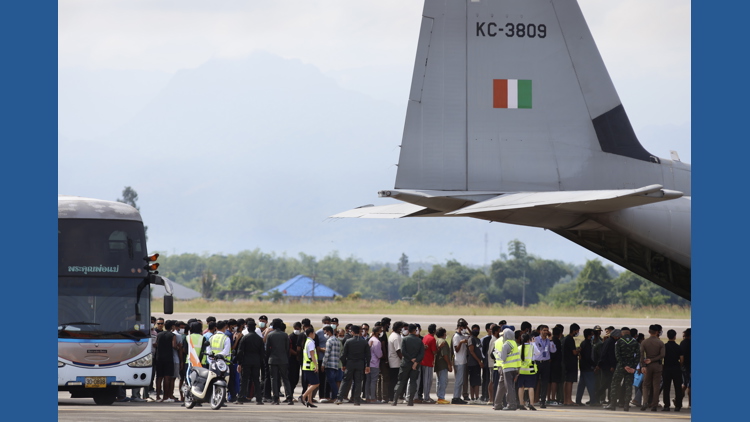URGENT UPDATE: A major crackdown on scam centers in Southeast Asia has led to the rescue of approximately 1,500 laborers as authorities intensify efforts to dismantle this widespread illegal industry. The operation unfolded at the notorious KK Park, located along the Myanmar-Thailand border, where the Myanmar military announced the facility’s shutdown last month. However, reports indicate that operations continue within parts of the compound, raising concerns about ongoing exploitation.
Victims, primarily from countries including India, China, the Philippines, and Kenya, are often trapped in brutal conditions, forced to work long hours on scams that have cost global victims tens of billions of dollars. The Thai military is collaborating with foreign governments, including India, to repatriate these individuals, with flights already transporting workers home via Indian air force transport planes.
Despite these efforts, the situation remains dire. KK Park is just one of dozens of scam compounds operating in the region, many of which are protected by local elites and continue to thrive. The scam industry has exploded, particularly since the pandemic forced many online casinos to pivot to fraudulent operations. The United Nations Office on Drugs and Crime estimates that at least 120,000 people in Myanmar and another 100,000 in Cambodia are currently trapped in forced labor situations tied to these scams.
The tactics employed by scammers are increasingly sophisticated, targeting victims globally with high-pressure schemes that include fake investments and cryptocurrency fraud. In 2024 alone, Americans lost at least $10 billion to scams linked to Southeast Asia, as revealed by the U.S. Treasury Department. Recent indictments against individuals like Chen Zhi, a Chinese-Cambodian businessman, highlight the extensive nature of these criminal networks, with claims that his organization defrauded 250 Americans out of millions.
Authorities are actively raiding these scam centers, but activists warn that without addressing the root causes and capturing the masterminds behind these operations, the cycle of exploitation will continue. “If we only rescue the victims and don’t arrest anybody, especially the Chinese mafia and those transnational syndicates, then there will be no point,” stated Jay Kritiya, coordinator of the Civil Society Network for Victim Assistance in Human Trafficking.
As this situation develops, the international community is urged to remain vigilant and supportive of efforts to dismantle these operations. The battle against human trafficking and online scams is far from over, and the impact on victims is profound and deeply troubling. For those monitoring this ongoing crisis, significant updates are expected in the coming days as more workers are repatriated and authorities step up their efforts against these illegal networks.







